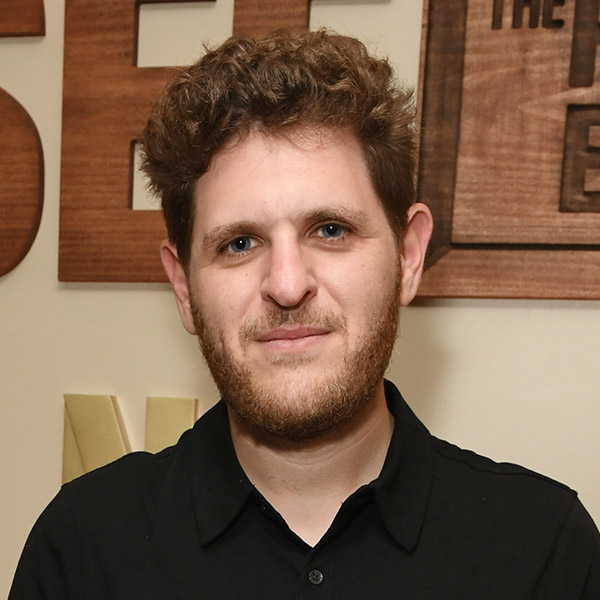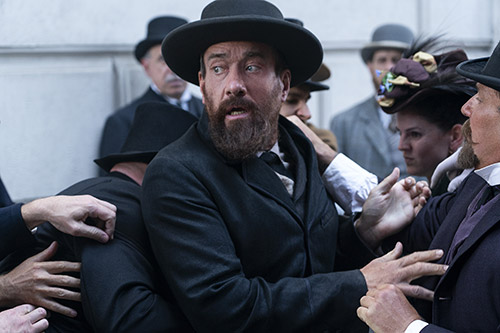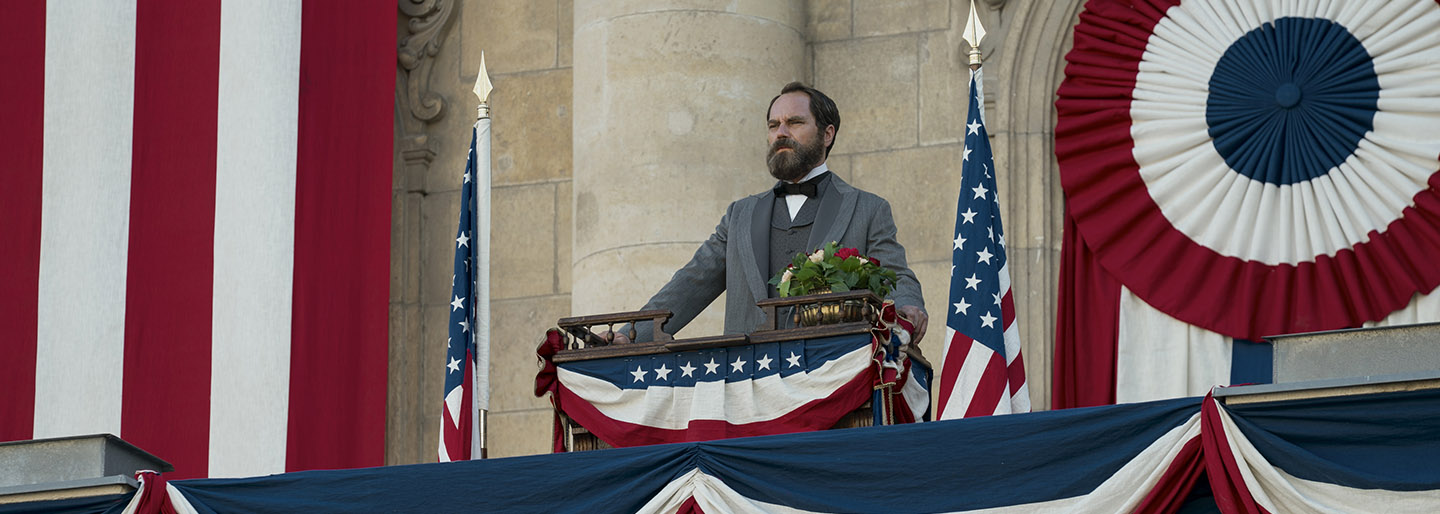Extraordinary events can require equally outside-of-the box detective work. In conducting his research into the life of assassinated U.S. President James A. Garfield for the Netflix miniseries, Death by Lightning, series creator and writer Mike Makowsky went to places both expected and unusual. From studying love letters at the Library of Congress to communing with corpses, the WGAW member of eight years even got a look at the mind of Garfield’s assassin. Literally.
For his fellow presidential history buffs, Makowsky offers some context to the “weird assassination vacation” he embarked on during the course of his research. They included Garfield’s home and library in Mentor, Ohio as well as the coffins of James Garfield and First Lady Lucretia Garfield which are located in Lake View Cemetery in Cleveland, Ohio, accessible to all visitors.
 Mike Makowsky. Photo: Unique Nicole/Getty Images for Netflix.
Mike Makowsky. Photo: Unique Nicole/Getty Images for Netflix.“Anyone can go into the crypt and spend some time with the Garfields,” says Makowsky, “which is sort of strange, but also a very moving experience that I would recommend to anyone who is interested in interfacing more with presidential history.”
As for Charles Guiteau, the would-be author and politician who was convinced that murdering Garfield would cement his place in history…Makowsky paid him a visit as well.
“I did get to see Guiteau’s brain up close,” Makowsky says of the disembodied brain which is highlighted in Death by Lightning. “You have to get special government permission and go to an army base to do so. I found that utterly fascinating.”
The four-part mini-series splits its focus between the rise of Garfield, a war hero and congressman who became a reluctant president, and Guiteau, an optimistic failure who was determined to hitch his wagon to any ascending political star. Set mostly in 1881 and based on the book Destiny of the Republic: A Tale of Madness, Medicine and the Murder of a President by Candice Millard, the series delves into political battles between Garfield and the New York political machine looking to exert its muscle. An array of colorful historical characters includes future president Chester Arthur and Alexander Graham Bell, inventor of the telephone.
In 2018, Makowsky was at the three-for-one table at his local Barnes & Noble and—needing a third book to trigger the discount—he picked up Millard’s book, devoured it in a single sitting, and decided he had to adapt it. It was the second time he had chased a historical event. Makowsky’s previous screenplay, Bad Education (2019) chronicling an embezzlement scandal at a New York school district, was based on Robert Kolker’s New York Magazine article “The Bad Superintendent.” Makowsky had been a student at Roslyn High School within the district while the events of Bad Education were taking place.
“I got to go back and shoot in my hometown, and all my first readers were my high school English teachers,” Makowsky says. “I do love the research process for adapting true stories be they from the 19th century or any other era. I tend to gravitate toward stories that are chiefly dramas, but allow for those pockets of levity because that’s how I view the world.”

I do think that a lot of the driving factors that impelled a madman like Guiteau to pick up arms and assassinate a political leader are eerily similar to some of these crazy people today. It’s that extreme alienation from society, that desire to matter and etch their name somewhere in the annals of American history.
- Mike Makowsky
While Makowsky found no shortage of intrigue and absurdity in the Garfield-Guiteau tale, convincing would-be buyers to sign on was no easy task, largely because the two historical figures at the story’s center have been forgotten by history.
“The obscurity was probably the biggest challenge to overcome,” says Makowsky, “but also these period historical stories are increasingly scarce in the marketplace. I’m not sure that there’s any TV buyer out there that is thrilled about the prospect of jumping head first into a story like this, let alone about one of our most obscure presidents. The prevailing sentiment early on seemed to be ‘Well, who cares?’ When I first told my agent that I wanted to write a limited series about James Garfield, he looked at me like I was totally insane.”
 Mathew Macfadyen as Charles Guiteau in Death By Lightning. Photo: Larry Horricks/Netflix.
Mathew Macfadyen as Charles Guiteau in Death By Lightning. Photo: Larry Horricks/Netflix.Makowsky saw plenty of potential for juicy drama in the infighting and jockeying for position within the Republican party. In Garfield (played by Michael Shannon), he saw a congressman and a Civil War hero who declared himself content living a quiet life in Ohio. Until he takes the stage at the Republican National Convention in Chicago and makes a speech on behalf of Treasury Secretary John Sherman, that ends up swinging the political momentum to Garfield.
“Hearing about this man’s rise from obscurity to the highest office in the land ostensibly against his will, the theoretical lack of ego, that felt refreshing to me,” says Makowsky. “As soon as he stepped up on stage and started giving that speech, he presented such a clear vision for the future of our country while also reconciling the complexity of the past. People saw those raw qualities of leadership that the nation had been starving for.”
“How often does a politician today have that platform and give a speech like that?” he adds. “That felt like something I would want to see in a leader today. Where are the James Garfields?”
Guiteau (Matthew Macfadyen), the series’ other central player is a man who also grew up in abject poverty and dreamed of making a mark on his country’s history. Death by Lightning was in production in Budapest in the summer of 2024 when then presidential candidate Donald Trump survived two assassination attempts including a bullet that grazed his ear at a Pennsylvania rally.
Political violence may not have been in the forefront of Makowsky’s mind when he first picked up Millard’s book, but “unfortunately now it is for all of us,” he says.
“It was deeply strange for all of us and upsetting clearly that there are still Charles Guiteaus out there,” he says, “but I do think that a lot of the driving factors that impelled a madman like Guiteau to pick up arms and assassinate a political leader are eerily similar to some of these crazy people today. It’s that extreme alienation from society, that desire to matter and etch their name somewhere in the annals of American history, this misplaced ambition, and they all believe they will be perceived as heroes.”
“His own destiny is to be the villain, not the hero,” he adds. “There are people out there who unfortunately take all the wrong lessons from acts of political violence.”





